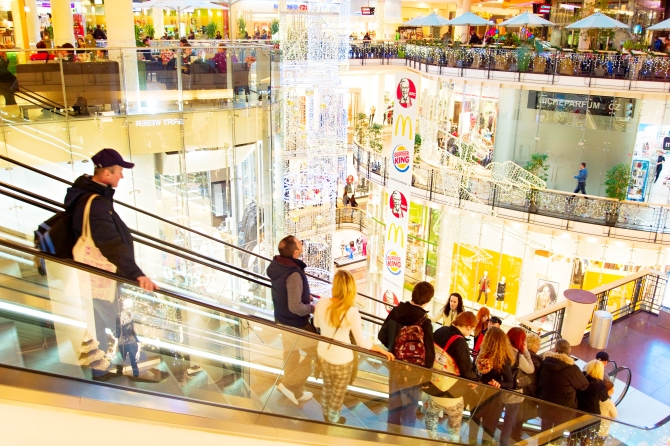Nearly £1 billion was invested in UK shopping centres during the second quarter of 2015, according to research published today by DTZ.

The global property consultancy reports that completed investment transactions during Q2 totalled £974.45 million across 22 centres, bringing the half-yearly total to £2.17 billion.
In addition, a further £919 million worth of shopping centres are currently under offer, while another £1.2 billion of assets are either available or being prepared for the market.
As investors sought greater value, the investment in Q2 was predominately in secondary and tertiary stock outside London, with 86 per cent of the total volume transacted in the regional markets.
The investment so far this year suggests that 2015 volumes are poised to reach those recorded in 2014, with a number of large centres due to come to the market before the end of the year.
Perhaps the most highly anticipated of these is Grand Central Birmingham, which is scheduled to open in September. Working on behalf of Birmingham City Council and Network Rail, DTZ is advising on the sale of the scheme and is looking for offers in excess of £260 million.
Head of Shopping Centre Outlet Investment, Barry O’Donnell, said: “Demand for investment stock remains exceptionally strong. The positive news for investors is that supply is now beginning to meet these high levels of demand with more that £2.1 billion of shopping centre stock either under offer, available or being prepped for market.
“With a number of large lot sizes coming to the market we expect even higher transaction volumes in the second half of the year with year-end figures estimated to reach 2014 levels.”
Super prime and prime yields have remained stable at 4.25 and 5.25 per cent respectively but are trending in, the research finds. Secondary, dominant secondary and tertiary have all hardened at 25bps over Q2 to 6.25 per cent, 7.75 per cent and 8.25 per cent.
The second quarter also saw continuing improvement in the occupational market, with the highest consumer confidence index level seen in almost 15 years reflected in the 26th consecutive month of year-on-year retail sales growth.
Jonathan Rumsey, Head of Retail Market Analysis at DTZ, commented: “Retail sales as measured by the ONS have seen 26 months of consecutive year-on-year growth, the longest sustained period of growth since 2008. Low inflation, rising employment and real wage growth have led GfK’s consumer confidence index levels to rise to a level not seen since the turn of the century, while vacancy rates remain at their lowest since 2010.
“Additionally, the list of retailers looking for new space continues to grow, with occupiers such as Jessops, David’s Bridal, Tapi Carpets, Kiko Milano and a plethora of casual dining operators announcing their ambitious expansion plans. This all adds up to a very positive outlook for investors able to secure the right assets.”
Previous Post
South West urged to emulate Northern Powerhouse